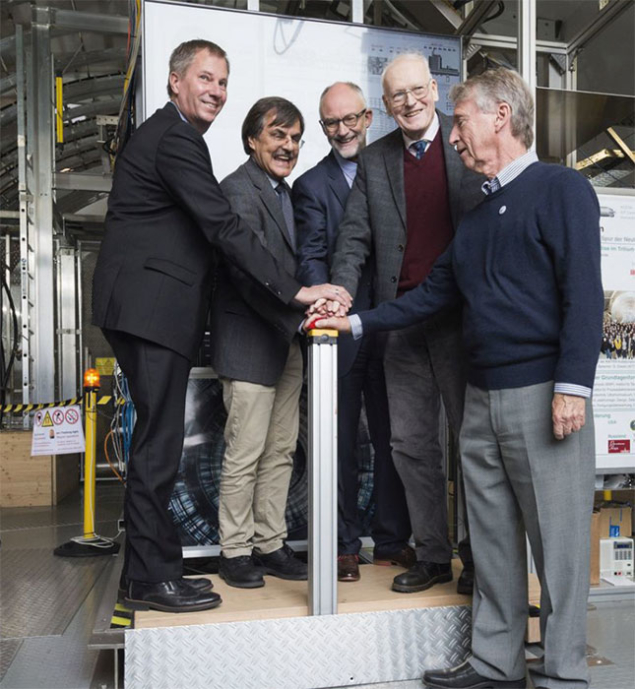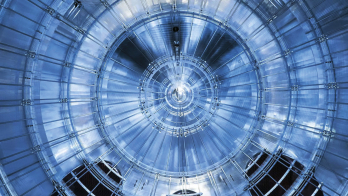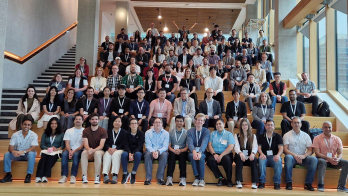
Image credit: Patrick Langer, KIT.
On 14 October, the KArlsruhe TRItium Neutrino (KATRIN) experiment, which is presently being assembled at Tritium Laboratory Karlsruhe on the KIT Campus North site, Germany, celebrated “first light”. For the first time, electrons were guided through the 70 m-long beamline towards a giant spectrometer, which allows the kinetic energy of the beta electron from tritium beta decays to be determined very precisely. Although actual measurements will not get under way until next year, it marks the beginning of KATRIN operation.
The goal of the technologically challenging KATRIN experiment, which has been a CERN-recognised experiment since 2007, is to determine the absolute mass scale of neutrinos in a model-independent way. Previous experiments using the same technique set an upper limit to the electron antineutrino mass of 2.3 eV/c2, but KATRIN will either improve on this by one order of magnitude or, if neutrinos weigh more than 0.35 eV/c2, discover the actual mass.
KATRIN involves more than 150 scientists, engineers and technicians from 12 institutions in Germany, the UK, Russia, the Czech Republic and the US.








